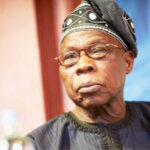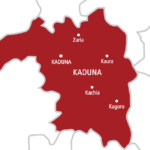Title: Nigeria and the World: A Treatise on Foreign Policy
Author: Steve Egbo
Publisher: John Jacob’s Classic Publishers
Pages: 434
Reviewer: Nathaniel Bivan
In an article published by Vanguard Newspaper on September 5 2018, the author, Tabia Princewill pointed out that three heads of powerful Western states (France’s Emmanuel Macron, Britain’s Theresa May, and Germany’s Angela Dorothea Merkel) visited Nigeria in rapid succession that year and yet there was no real summary of what the country benefitted from the diplomatic dialogues. If there was, he wrote, it was neither extensively discussed nor debated. He went on to point out that, in other climes, foreign policy can either bring down a government or propel it to electoral victory.
Steve Egbo’s (a scholar, researcher and lecturer in the Faculty of Social Sciences, Abia State University, Uturu) ‘Nigeria and the World: A Treatise on Foreign Policy’ sought to place in perspective, the actors, issues, and events that have influenced and determined the direction of Nigeria’s external relations since independence. In other words, whether good or bad, Nigeria’s foreign policy has had immense impact on where the country is today when it comes to its relations with the outside world.
According to Encyclopaedia Britannica, the development of foreign policy is influenced by domestic considerations, the policies or behaviour of other states, or plans to advance specific geopolitical designs. This in effect means that Nigeria’s foreign policy overtime goes a long way in determining how it relates with and is treated by other nations of the world.
Egbo ex-rays the foreign policies of past Nigerian governments beginning from Abubakar Tafawa Balewa (from 1960 to 1966), the first prime minister of independent Nigeria. This is followed by that of General Johnson Aguiyi Ironsi (1966) who was the first Nigerian military head of state, General Yakubu Gowon (1966 to 1975), and General Murtala Mohammed (1975 to 1976).
Others include the regimes of General Olusegun Obasanjo (1976 top 1979), Shehu Shagari (1979 to 1983) who became the first Executive President of Nigeria, General Muhammadu Buhari (1984 to 1985), General Ibrahim Babangida (1985 to 1993), General Sani Abacha (1993 to 1998), and General Abdulsalami Abubakar (1998 to 1999).
Obasanjo came back to the scene in 1999 up to 2003, the exact year this book was published, so the time of Musa Yar-adua, Dr. Goodluck Jonathan and Buhari as president is not included. However, Buhari’s foreign policy, even as military ruler, still stands out.
It is stated in page 80 that although on assumption of office, Buhari made it known that his major preoccupation was not foreign policy per se, he however did not lose sight of its importance. It reads:
“The four years of Shagari’s presidency had brought Nigeria’s prestige and relevance in international politics to a very low ebb. The Chadian crises and the SADR issue in which Nigeria was unable to play a decisive role had left the country’s reputation and influence vastly depleted in the international arena. Buhari started by purging the External Affairs Ministry of the dead-woods who got there solely through political patronage. Experts in the field of external relations were put in place to restructure the establishment in order to provide the much-needed impetus and vigour to Nigeria’s external relations and foreign policy.”

To add to this development, at the United Nations, Nigeria retained the chairmanship of the Committee Against Apartheid. The Buhari government injected ‘fresh blood’ into the committee thereby making it more active and more pragmatic in its campaign against apartheid. Also, the regime came out ‘in full support’ of Namibia’s independence.
P 82: “The Buhari government expressed strong opposition to the presence of foreign troops in Chad. The presence of interventionist forces in a neighbouring country was perceived as a direct threat to Nigeria itself. The government therefore took effective steps to curb the systematic internationalisation of the Chadian crises. Nigeria’s efforts led to the immediate withdrawal of French and Libyan forces from Chad. This withdrawal became a foreign policy triumph for the regime of General Buhari.”
Another foreign policy achievement by Buhari’s military government was when he took steps to strengthen regional co-operation between Nigeria and her neighbours. A typical example was when he provided a piece of land at Abuja for the construction of ECOWAS headquarters and when he “resisted pressures from Arab countries to upgrade Nigeria’s observer status at the OIC to that of full membership despite promises of economic assistance and more. “The Buhari regime maintained that Nigeria was a secular state, and that the secular status of the country cannot be compromised arbitrarily.”
If a researcher is interested in the chronological arrangement of governance in Nigeria, and particularly the analysis of their foreign policies, ‘Nigeria and the World: A Treatise on Foreign Policy’ is a good place to start. It is noteworthy that this book was first published in 2003 and reprinted in 2006 and 2011, so any speculation that it was produced to praise the person of President Muhammadu Buhari who is Nigeria’s present president quickly becomes irrelevant.
Interestingly, the book pointed out that Nigeria needs “a Buhari. If it is too late to find Muhammadu Buhari to salvage this nation, Nigerians must not relent. Nigeria must continue its search until a Buhari is found. Britain found a Winston Churchill, America found Abraham Lincoln, India found a Mahatma Ghandi, China found their Chairman Mao, Nigeria must find a Buhari.”
Some readers may, however, fault Egbo’s objectivity when he wrote that the environment under which Buhari operated was different from that of Murtala Mohammed and Olusegun Obasanjo, and so this was why his foreign policy could not rival theirs at the time. “The regime inherited a dislocated and grossly mismanaged economy, bogged down by huge foreign debts, external impertinent creditors, and a substantially decreasing oil revenue base.”
Babangida appeared to start well but his foreign policy was soon characterised by (page 95) “rhetoric, emptiness, inaction, policy somersault and indecision” which reached a climax when he annulled the June 12 elections. A typical example of his regimes first strides was when he appointed Bolaji Akinyemi (as Foreign Affairs Minister), a renowned scholar and professor of International Relations. Akinyemi helped in resolving the border conflict between Burkina Faso and Mali. This gained Babangida international approval. But this did not last.
To a large extent, however, Egbo’s analyses can be said to be objective because a lot of what he wrote in his book is something many Nigerians can probably relate to. It was no secret, for instance, that during the Abacha era the nation was not in good standing with some countries, particularly those in the West. Abacha’s body language seemed to tell those countries he did not care what they thought of his country (or rather, his regime).
(P101) “As Abacha increasingly veered out of control, he decided to fraternize openly with pariah nations of which Libya was one. When the Libyan leader, Muammer Ghadafi, visited Nigeria in April 1997, the visibility and flamboyance accorded the visit by Nigerian authorities was regarded as an affront to the world community. This was in view of the existing sanctions imposed on Libya by the UN over the unfinished business of the Pan Am flight 103 air disaster in December 1989 which killed 441 persons. Investigations on the incident had linked Libya with thye sabotage of the aircraft and Libya was not able to satisfactorily exonerate itself from suspicions of being an accomplice. Libya’s refusal to hand over her two security operatives accused of the crime led to series of the United Nations’ sanctions.”
This book is beyond an ex-ray of different Nigerian governments and their foreign policy. It looks at relations between Nigeria and world powers such as the United States, France and China. Nigeria-US relations, for example, predates the period of Nigerian independence. This makes it a valuable historical material for students of history and generally, Nigerians curious about what has shaped us into what we are today. Perhaps the author should consider doing a second volume that would include the Obasanjo era as civilian president down to this present time where Buhari is given a double opportunity to ‘fix’ the nation. After all, this was the author’s wish at the time this work was written in.
 Join Daily Trust WhatsApp Community For Quick Access To News and Happenings Around You.
Join Daily Trust WhatsApp Community For Quick Access To News and Happenings Around You.


